Perhaps even more important than what happens before the commissioners at BLLC hearings in Room 215 is the process by which licensees are brought (or not) before the Board. Over the coming year, Booze News will highlight one Liquor Board file per month: combing through the inspections, supplemental information, 311 and 911 call records, and any other information in the file that will help provide a more complete picture of how the agency regulates. The series will focus on the complaints and documents that have been submitted between 2013-15, since the agency does not keep files longer than three years and has not uploaded 2016 files to their online database.
The series will attempt to focus on establishments that are representative of businesses found throughout the city: not the most egregious violators but everyday licensees and their impact on their neighbors.
The first in this series is Miller’s Liquors. Miller’s Liquors is a Class “A” 6-day liquor store, located at 849-51 Washington Boulevard in the Pigtown neighborhood of Southwest Baltimore. There are two licensees at this establishment, who hold the license on behalf of the corporation Hong Ko Inc.: Sung Hae Macdonald and Han Sup Yoo. Neither licensee lives in Baltimore City.
Open Baltimore’s list of all 311 complaints begins in early 2015, but we can reconstruct three 311 complaints from an inspector’s report. The first two reports in 2013 seem to have been from routine inspections. The third was a visit spurred by three different complaints submitted on November 20, December 16, and December 23, 2013.
311 Complaints and Inspectors’ Reports
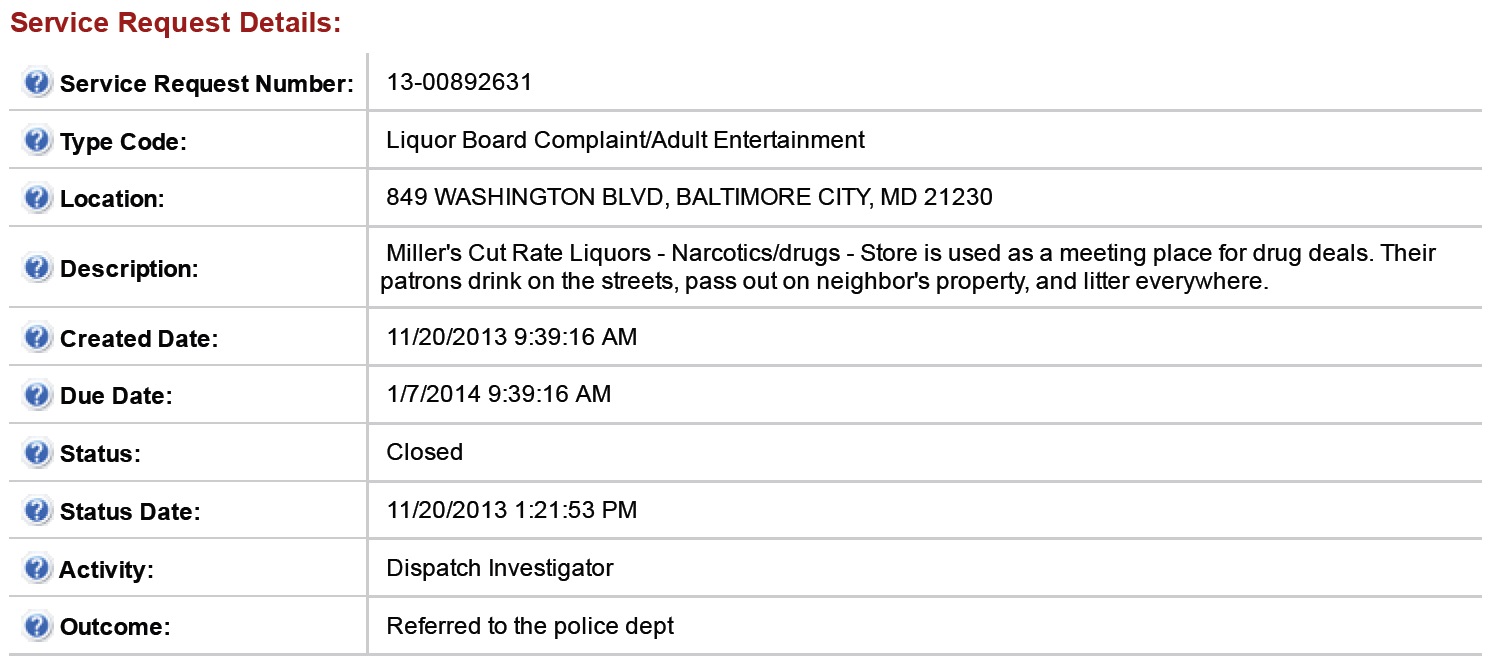
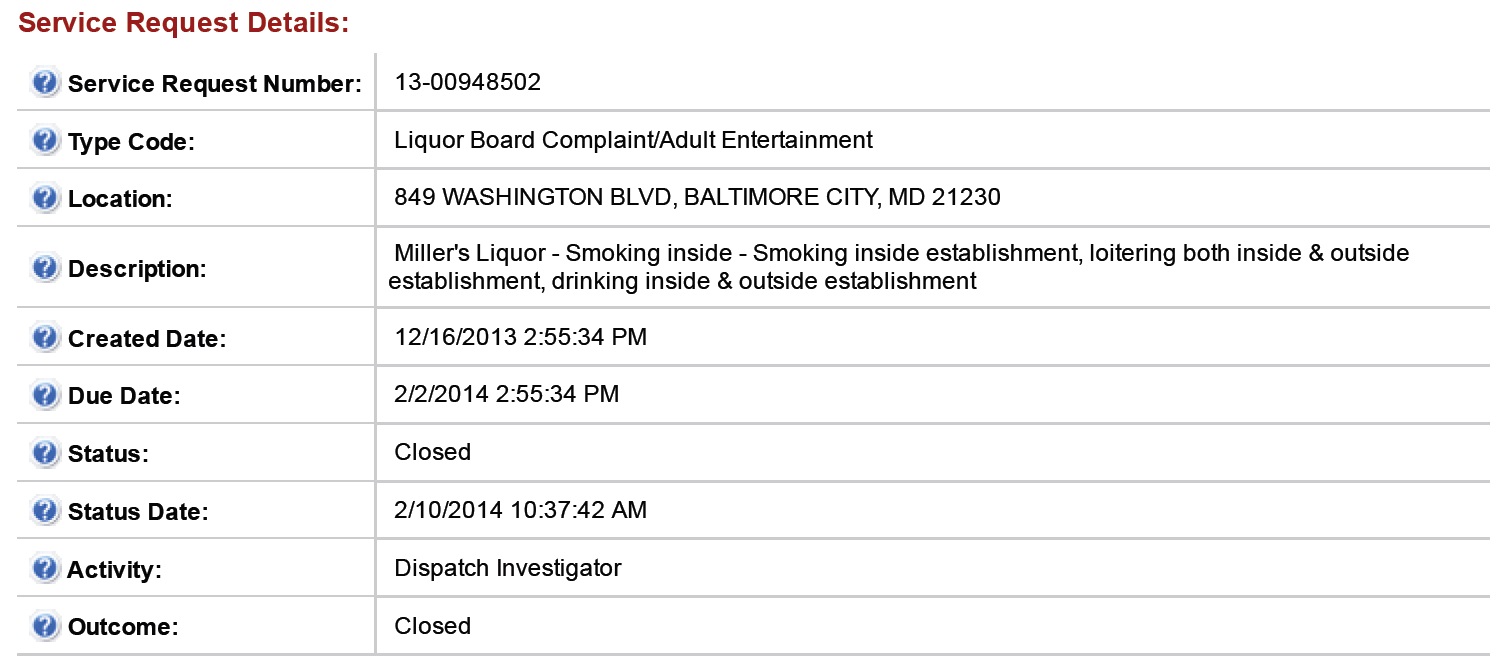
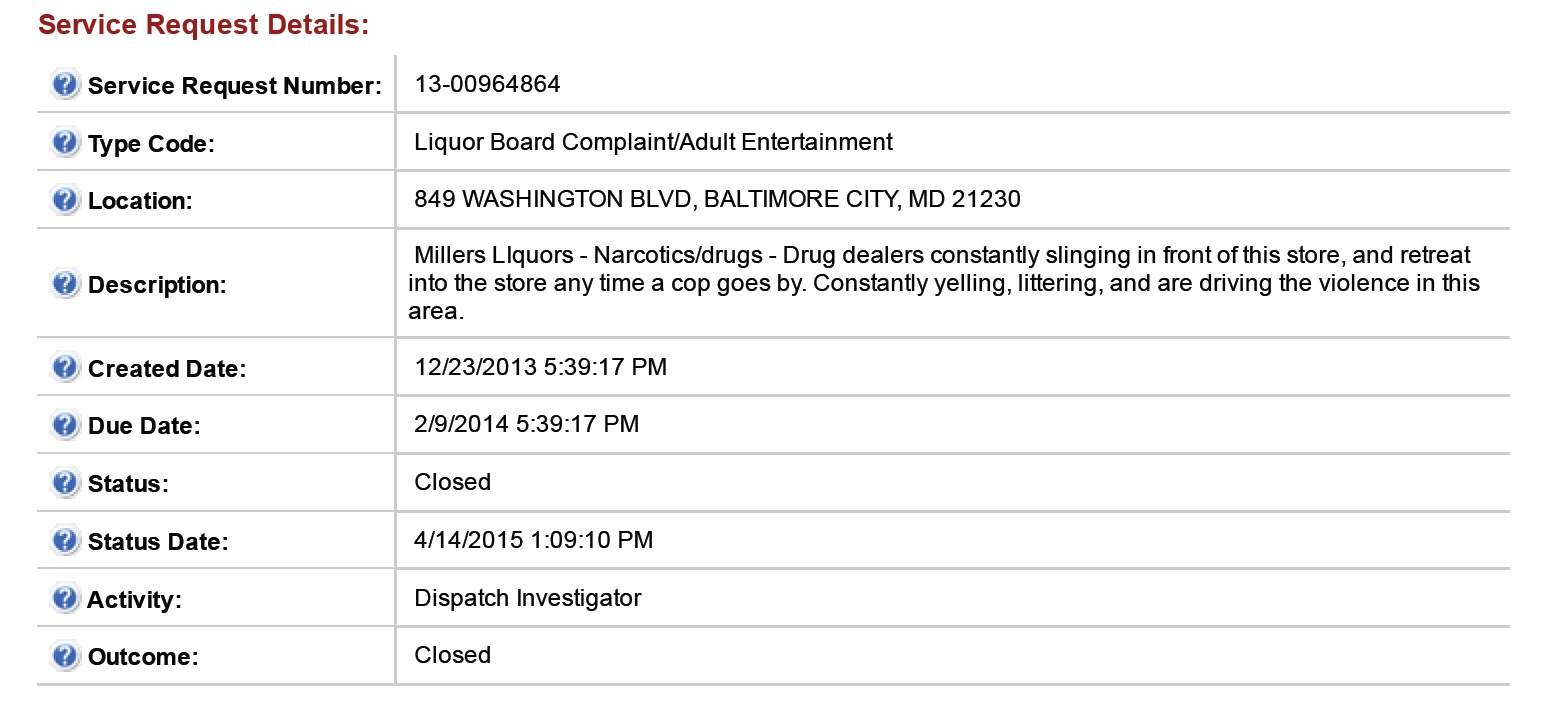
On December 30, 2013, Inspector JoAnn Martin visited the establishment to investigate all three complaints. She wrote that there was “no loitering or illegal activity at time of visit.” She instructed the licensee to “comply with all rules and regulations” of the Baltimore City Liquor Board. See the Liquor Board’s 2013 reports here.
311 Complaints and Inspectors’ Reports
Again, from the inspectors’ reports, we can recreate two specific 311 complaints submitted in 2014: on January 30 and on October 4.
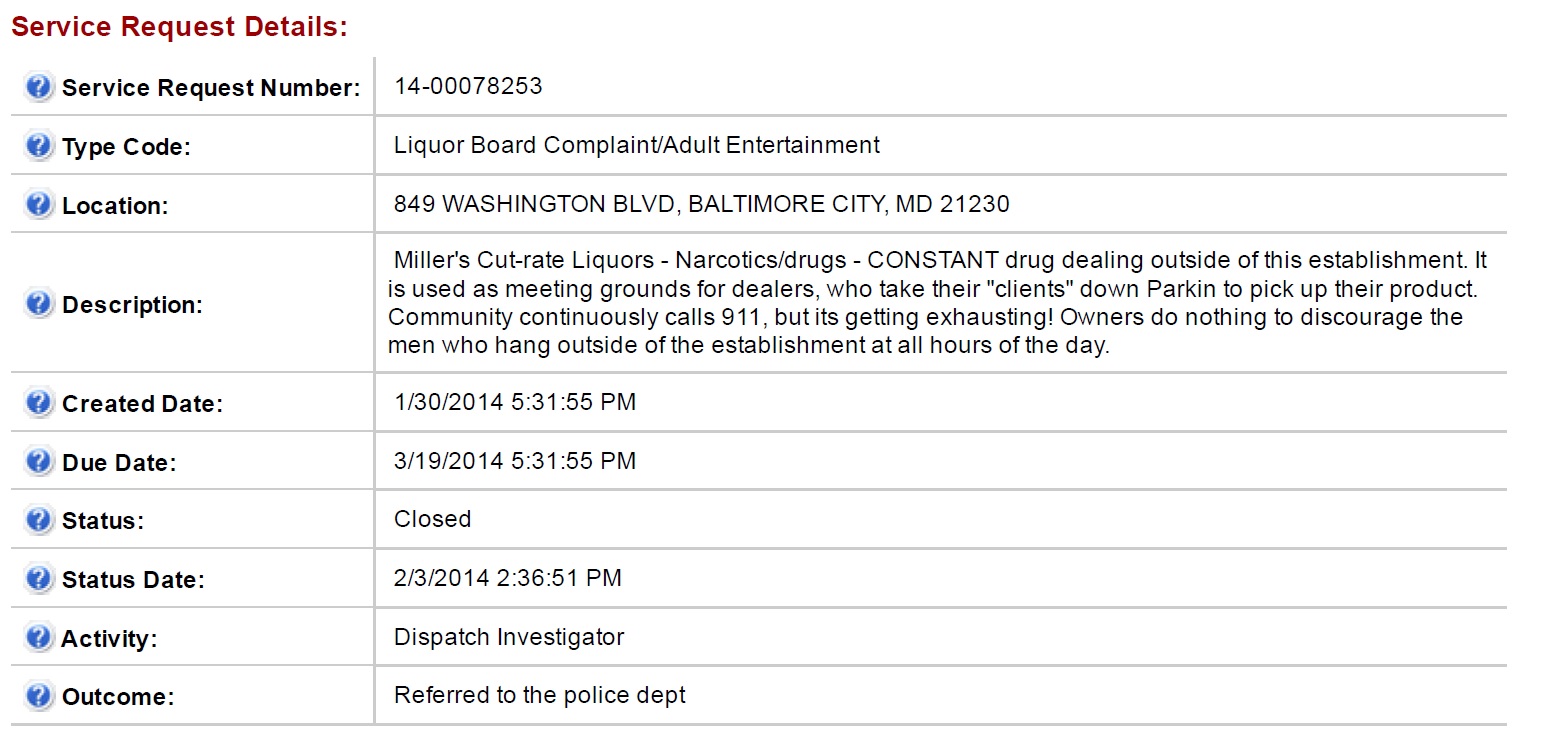
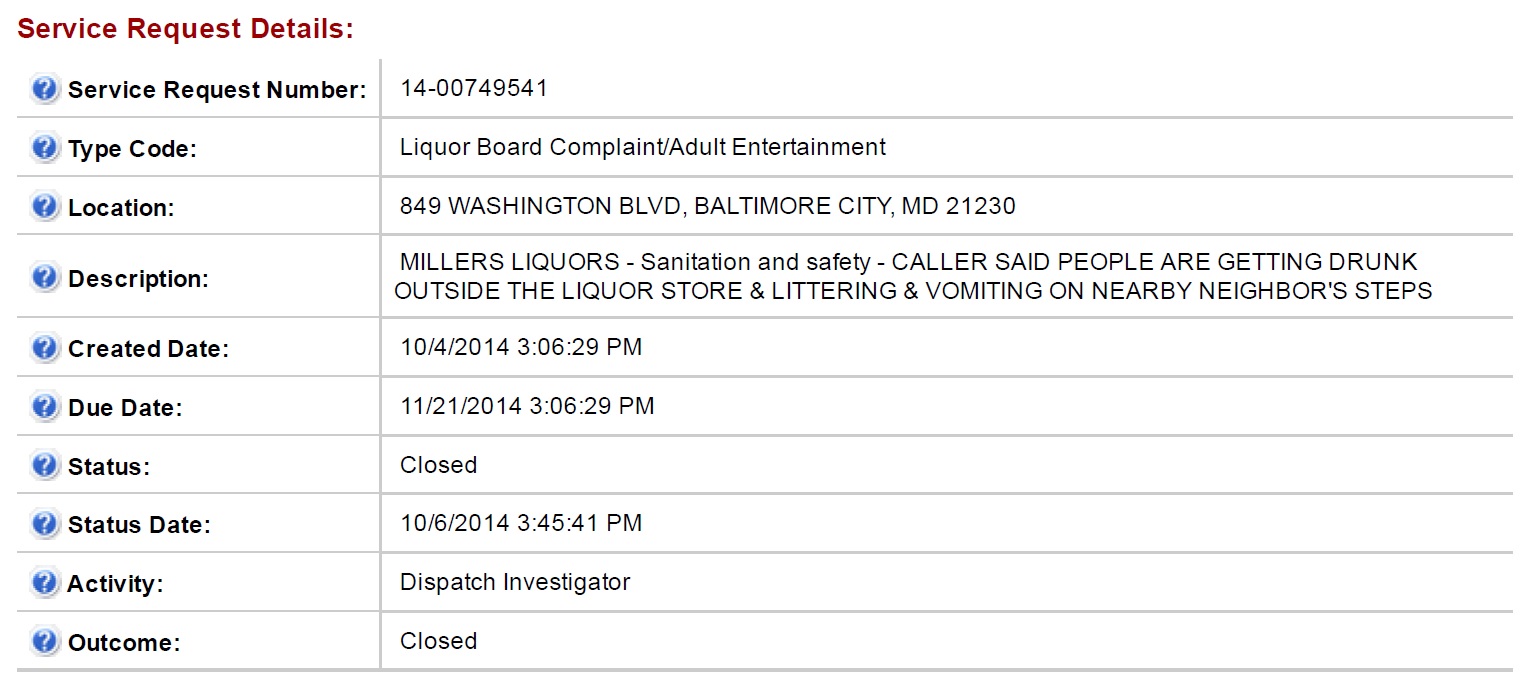
According to the file, inspectors visited Miller’s Liquors six times in 2014: four times seemingly for routine inspections and twice for inspections relating to complaints. Following the January 30 complaint, Inspector Martin visited the premises on February 3, four days later, and wrote that she did not witness any loitering or drug dealing. In response to the October 4 complaint, which she visited on the same day, Inspector Martin wrote that she “did not observe anyone drinking inside or outside premises” and that “no loitering” signs were posted. She did not note what time she arrived at the establishment on October 4. To read the 2014 Inspectors’ Reports, click here.
Protest of Renewal
In April 2014, neighbors protested the renewal of the Class A liquor license at Miller’s Liquors. To read the Booze News writeup for the April 17, 2014 Renewal Protest, click here. To read the Baltimore Brew‘s story on the Liquor Board hearing, click here. At the hearing, neighbors presented testimony and evidence that the business sells mostly miniature bottles of alcohol to people who consume them on the street. They testified that the establishment is a magnet for criminal activity and that there is trash in and around the building. Some testified that they had seen drug dealing and loitering inside and outside. Others testified that they had seen public urination. When police pass by, the troublemakers duck into the store and pretend that they’re there to purchase something.
Inspector JoAnn Martin testified that she had been there six or more times in the past year, and everything had always been in order. She had received complaints about drug dealing but had never seen it. She admitted that she could have arrived “hours later” after the complaints were submitted. The reports in the file showed that Ms. Martin had been to the establishment four times, not six, over the past license year, and she often went to the establishment not hours but days, even weeks, after a complaint was submitted.
One neighbor who had originally signed the petition against Miller’s Liquors wrote to the Liquor Board to rescind her signature. In her letter, the neighbor wrote (identifying information removed): “Greetings, Board of Liquor License Commissioners. I [neighbor’s name] and ALL Residents of [Address] hereby withdraw any protest against my neighbor of 849 Washington Blvd. The petition was signed, without knowing all obvious facts.” Below her name, this neighbor wrote the following:

At the protest of renewal hearing, one of the neighbors who testified against the establishment said that the licensees had gone door to door to talk to everyone who signed the protest petition. He argued that the protest signatories were afraid of repercussions from opposing the license’s renewal. It was unclear from his argument exactly whom neighbors would be afraid of.
311 Complaints and Inspectors’ Reports
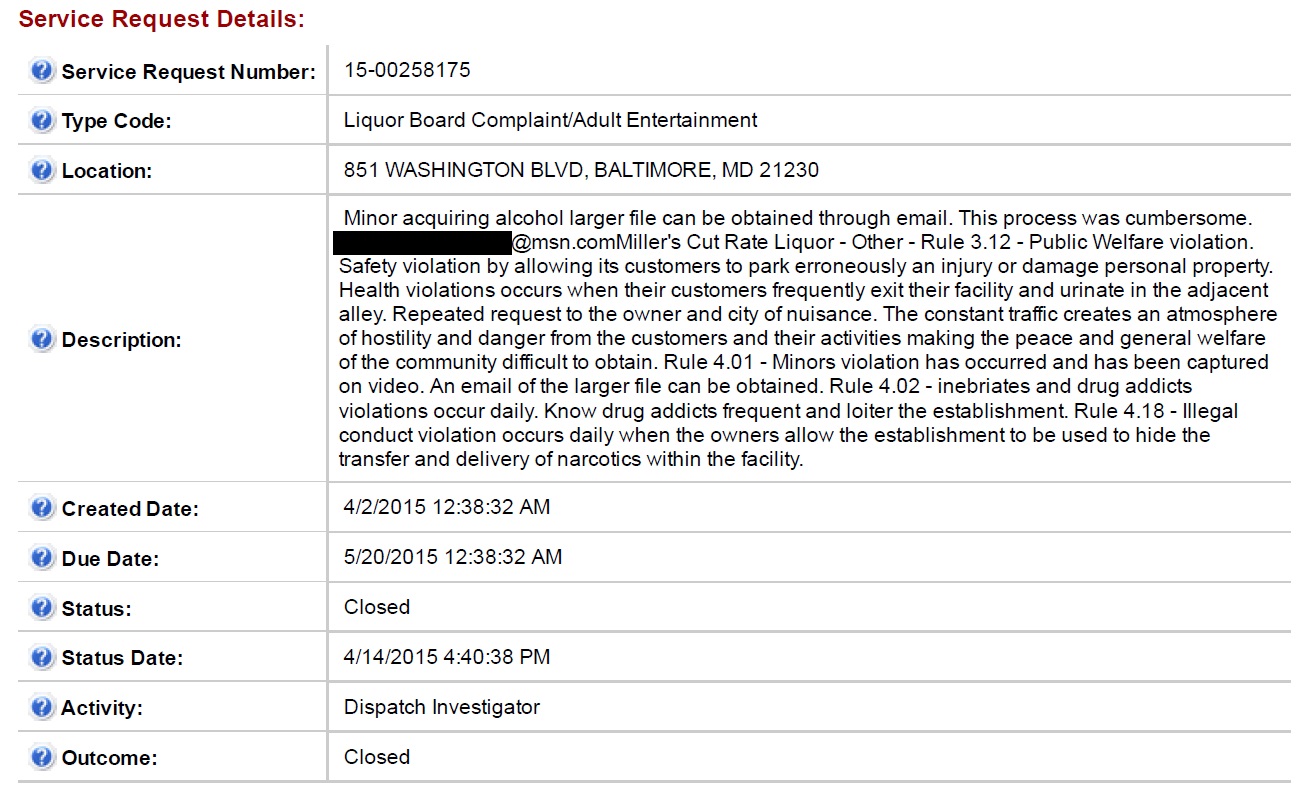
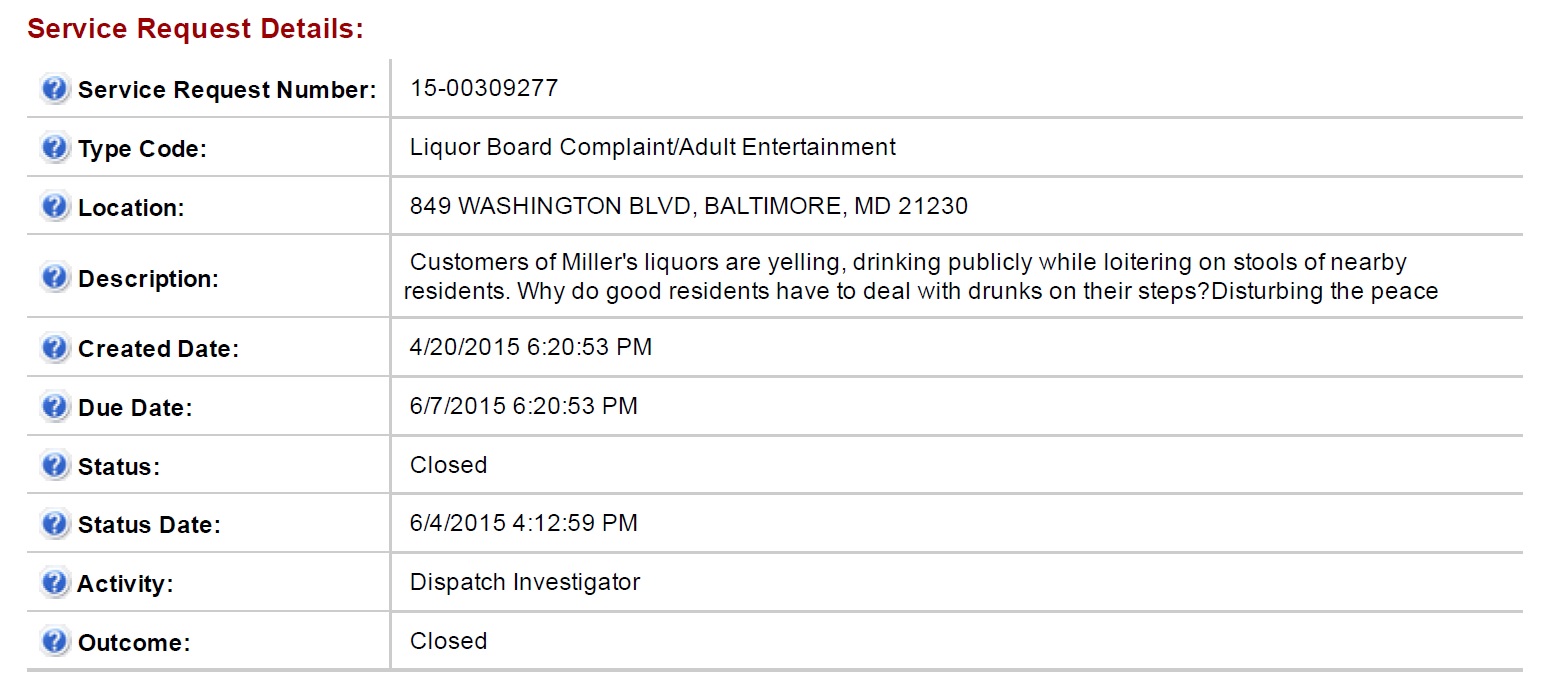
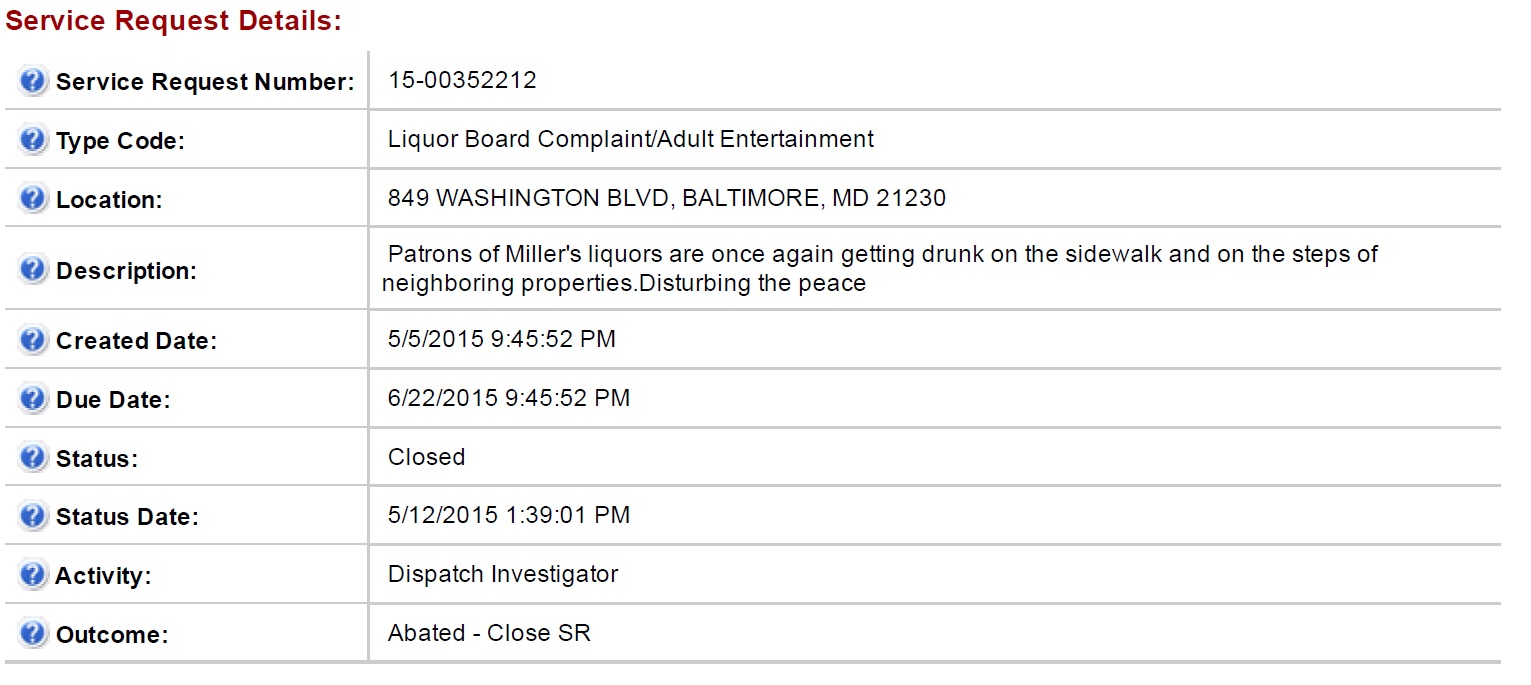
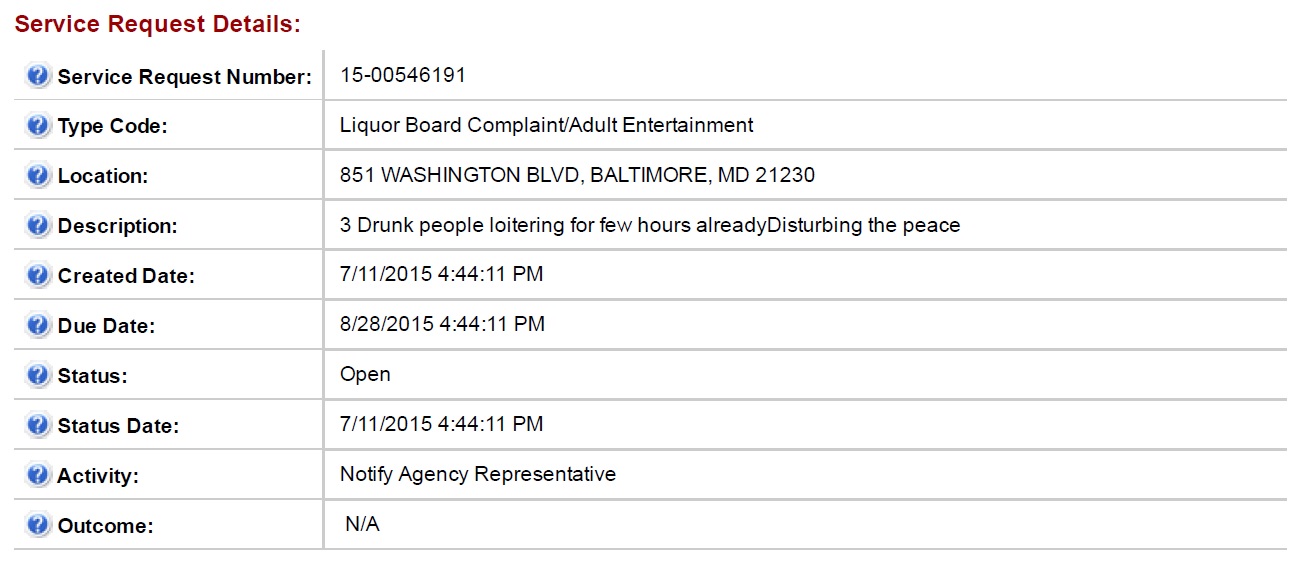
To read the four 2015 inspectors’ reports, click here. Inspector Martin visited on April 20 and did not witness disturbances of the peace. There was no followup to any of the other three complaints: the other inspections in 2015 seemed to be routine inspections, not responses to complaints. There was nothing in the file to suggest that anyone from the Liquor Board contacted the person who included his email address in his complaint and claimed to have video evidence of violations of the Rules and Regulations, including sales of alcohol to minors.
—–
Questions and thoughts:
The documents in the Baltimore City Liquor Board’s files often raise more questions than answers. Here are a few questions raised by the documents in this file:
-
- What is the purpose of routine inspections? Are they busy work, or is the agency collecting valuable information? Most routine inspection reports are extremely perfunctory. For example, inspectors check licenses and certifications four times per year that only change every one to four years (traders’ licenses, alcohol awareness certification, etc.). With the limited resources available to this agency, why perform these inspections that seem to have no public health benefit?
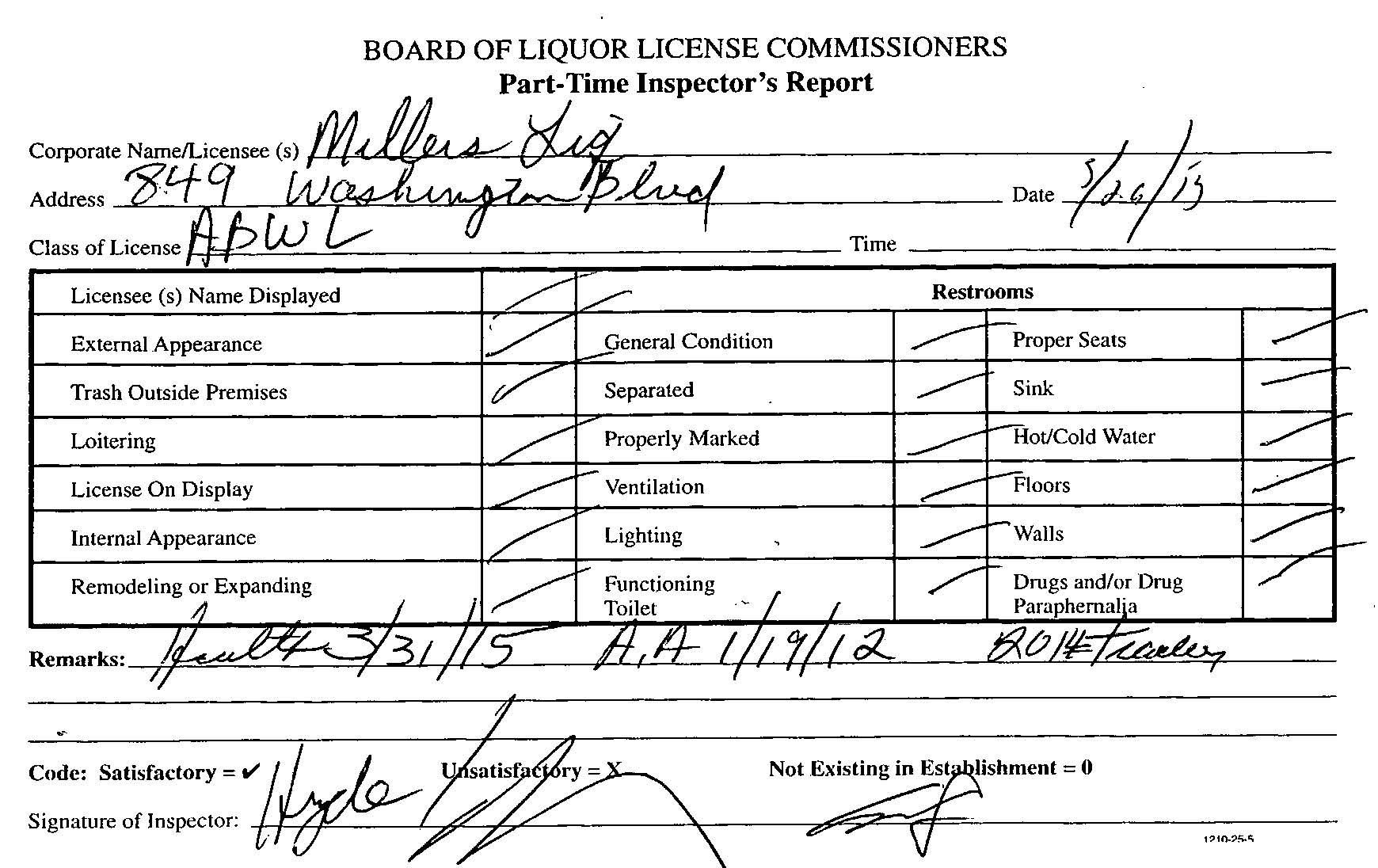
- How is it possible that community members are complaining about constant loitering, drug dealing, urination, and intoxicated patrons, but the inspectors never see any evidence of these concerns?
- Did the Liquor Board really not follow up with a community member who submitted his email address and said that he had video information to share? If not, why not?
- Why did the neighbor decide to withdraw her name from the petition? Given the agency’s seeming lack of meaningful action on this licensee over several years, can anyone blame a neighbor who’s reluctant to make him- or herself vulnerable to harm by protesting the renewal of a license or submitting a complaint?